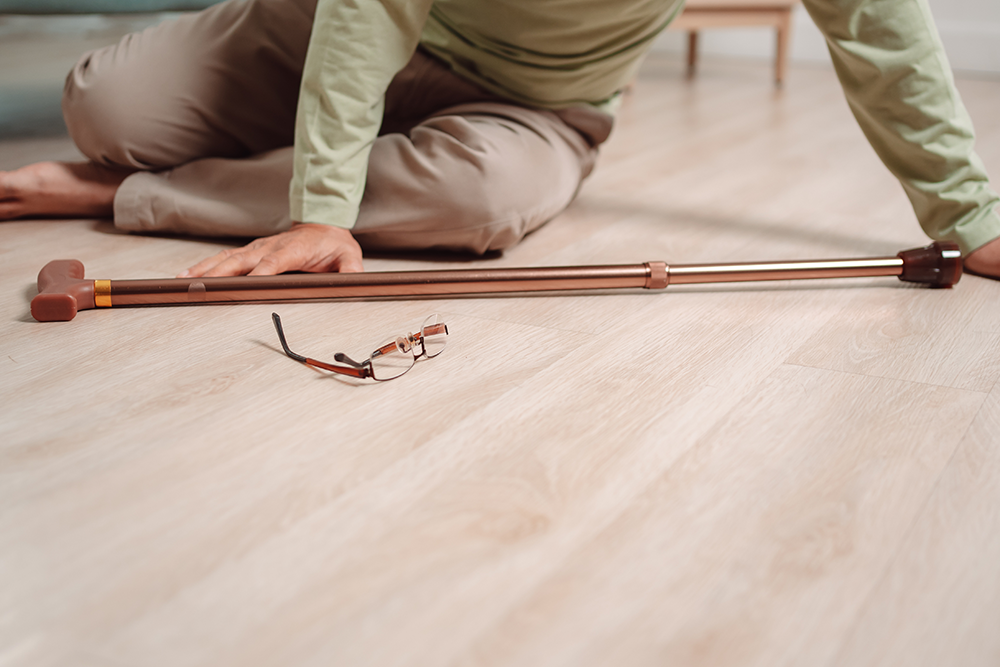September marks fall prevention month, and preventing falls among our elderly remains a concern all year round. Research shows that more than one out of four Americans over the age of 65 falls each year. Additionally, falls are the leading cause of both fatal and non-fatal injuries for older adults.
In preventing falls, our care coordination team, with our home-modification specialist and trained occupational therapist’s support, regularly assesses our clients’ environments and encourages regular communication with their physicians and treatment teams about any potential concerns.
It is beneficial to have a candid conversation with your loved one’s doctor about any changes in mobility. There are many factors that can contribute to falls, including medical changes, side effects of medications, as well as the physical environment. Here are a few talking points for preventing falls to discuss with your loved one and/or their doctor.
- Start by asking your loved one’s doctor whether they are at high risk for falls.
- Ask your loved one’s doctor whether there are any steps you can take to prevent avoidable falls.
- Discuss scheduling an appointment to check your loved one’s vision at least once a year.
- Ask the doctor or pharmacist to review the side effects of prescription and over-the-counter medications.
- Encourage the use of appropriate footwear. The safest shoes tend to have lower heels, non-slip soles, and a secure fit with laces or straps. In the nursing home setting, non-slip slippers should be provided to the residents.
- Inspect your loved one’s home for tripping hazards such as wires and phone cords away from hallways and stairways.
- Install nightlights in bathrooms, bedrooms, and hallways.
- Install grab bars in your loved one’s tub or shower.
- Install non-skid liners under rugs.
- Encourage your loved one to exercise as much as possible. Exercise increases strength, flexibility, and balance. This includes encouraging physical therapy for nursing home residents.
- If your loved one is a fall risk, lower their bed to make it closer to the ground. Also, consider positioning the bed in the corner of the room and placing protective mats around the bed to reduce the force if they fall to the floor.
- Institute a toileting schedule where you encourage trips to the bathroom at regularly scheduled intervals. Seniors with cognitive difficulties who cannot walk to the bathroom by themselves often forget this when they experience the need to use the bathroom. A toileting schedule reduces the chance that your loved one would try to go to the bathroom late at night without assistance.
It would be best to discuss preventing falls with your loved one’s physician. Communication between the family and the interdisciplinary team is the best way to prevent avoidable injuries.


